Collagen-rich meals have significant nutritional advantages and, of course, taste really pleasant. I prefer to incorporate these foods into my diet on a regular basis. Supplements and a whole-foods diet strategy might complement one another when it comes to increasing collagen levels.
You can bet I was hooked once I learned the remarkable anti-aging and skin-strengthening properties of our body’s most prevalent protein.
Incorporating collagen into your diet offers numerous advantages. Not only are there natural methods to boost natural collagen production, but there are also delectable foods packed with this essential protein. Prioritizing your body’s well-being should never mean compromising on flavor or the sheer delight of relishing in mouthwatering, soul-nourishing meals.
The potential for natural collagen to improve our health and vitality and to originate from organic sources makes it interesting. Natural collagen is sourced from animals or plants, in contrast to synthetic collagen, which is manufactured artificially.
How can you promote natural collagen production?
My mind always tends to choose actual, savory food above supplements, despite their apparent trendiness, adorable packaging, and indisputable ease. I’m always looking for routines that might improve my general health and provide me with endless energy.
A well-balanced and healthy diet is built on combining brilliant and colorful products while also prioritizing enough rest for your body. Consuming vitamin C-rich foods is one efficient strategy to increase your dietary intake. Consider including citrus fruits, tomatoes, bell peppers, leafy greens, and broccoli in your meal planning.
A delicious idea for a quick and simple weekday meal is bell peppers stuffed with samosa. In the meantime, I love starting my mornings with this energizing tropical smoothie before diving into my work. Additionally, the roasted chili miso broccoli is an unquestionably must-try for anybody looking to take their collagen-boosting diet to new heights.
Omega-3 fatty acid intake has to be increased for optimal health. Consider including a range of nutrient-rich foods in your diet to help you reach this goal. Salmon, sardines, cod, herring, and mackerel are all wonderful alternatives for fatty seafood. Eggs, avocados, walnuts, chia seeds, flax seeds, and all of these may be readily included in your meals as rich sources of omega-3s.
The necessity of giving sleep first priority will next be covered. Many parts of your body’s functionality are significantly impacted by making sure you obtain the necessary 7-9 hours of sleep per night. A sufficient amount of sleep plays a critical role in everything from increasing metabolism and bolstering immune function to improving your ability to fight off illnesses.
Take into account the extra advantage of collagen formation if these justifications aren’t convincing enough. You may further encourage yourself to get the benefits of a restful night’s sleep by just turning off your electronics and going to bed by 10 p.m.
Collagen formation is greatly accelerated by growth hormone activation while you sleep. Prioritizing excellent sleep hygiene is crucial if you want to reduce the appearance of wrinkles, improve the elasticity and suppleness of your skin, and reap the many other advantages associated with collagen.
Lastly, incorporating foods that are abundant in zinc and copper into our diet plays a crucial role in naturally enhancing our body’s collagen production. It is highly recommended to include shellfish, grass-fed beef, beans, and nuts in our meals and snacks to achieve this goal.
5 Foods Rich in Collagen
Collagen is a protein that can be found in animal products, specifically in the skin, bones, tendons, and ligaments. It’s important to note that collagen is exclusively present in animal-derived products. However, our bodies also produce collagen naturally. Therefore, apart from consuming foods containing collagen, there are certain foods that can actually boost our body’s own collagen production, even if they don’t contain collagen themselves.
Having established that, let’s investigate the best foods you can eat to increase collagen synthesis. These choices are appropriate for everyone to enjoy, regardless of whether you adopt a meat- or plant-based diet.
1. Bone Broth
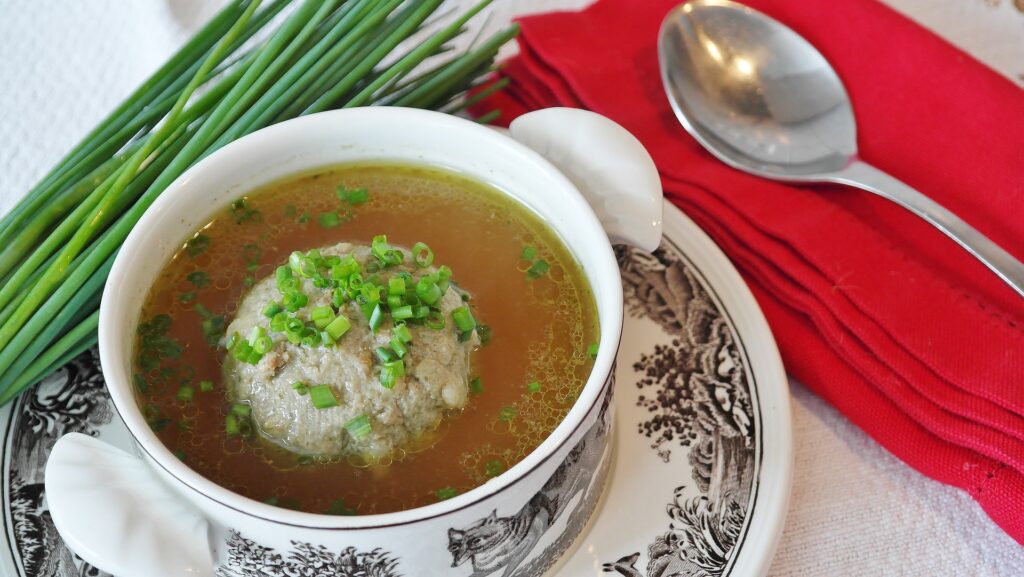
Given the benefits of collagen, it makes sense that bone broth has become increasingly popular in recent years. This amazing drink is not only a great source of collagen but also one of the easiest to absorb of any supplement available.
Making your own bone broth takes some time and effort, but trust me when I say it’s a wonderfully enjoyable cold-weather activity that will feed your body like nothing else. You can preserve the bones from any meat you prepare during the week or go to the butcher and acquire some extra bones for a more tasty soup.
To increase the flavor, you can add a mix of vegetables and leftovers and boil the bones slowly on your stovetop. Soon, you’ll be able to enjoy your very own handmade bone broth that you created yourself.
2. Eggs
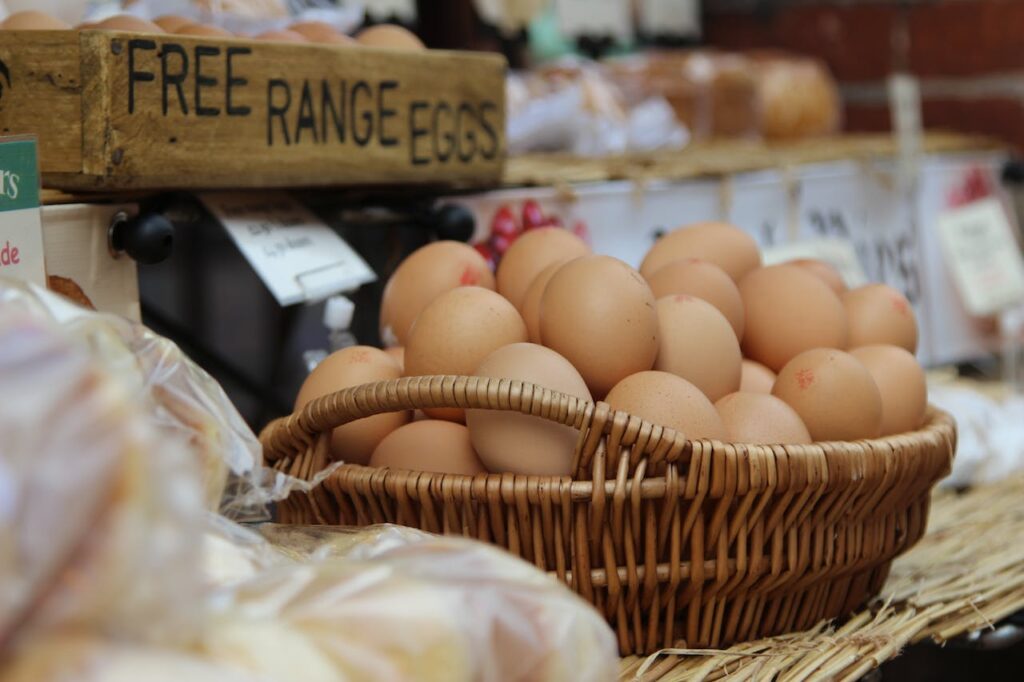
While proline, a necessary amino acid for the synthesis of collagen, is present in eggs even though collagen itself does not exist in them, for my part, I really think that anything can become a filling supper by just topping it with a poached or fried egg.
Additionally, eggs are a quick and high-protein snack. And this rice dish is the ultimate showstopper if you want to make a salad that is both genuinely tempting and visually striking.
3. Meat
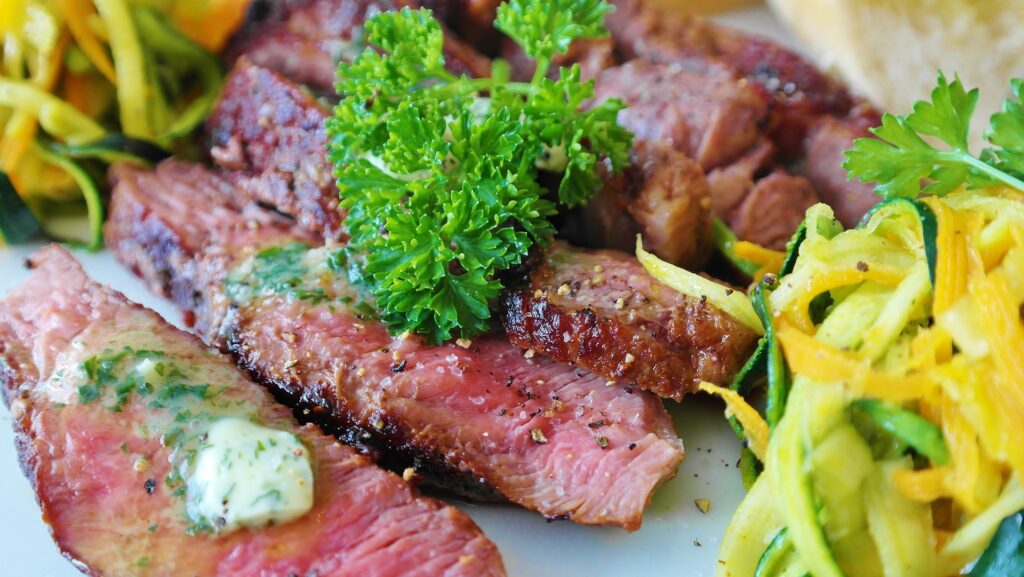
Chicken is a wonderful source of natural collagen and is a terrific alternative for folks who prefer meat. If you want to increase your collagen consumption, choosing a dish or cut that incorporates skin is a good idea.
We prepare this delightful roasted chicken dish every Sunday throughout the autumn and winter seasons. It’s incredibly cozy, bursting with flavor, and packed with collagen goodness.
4. Fish And Seafood
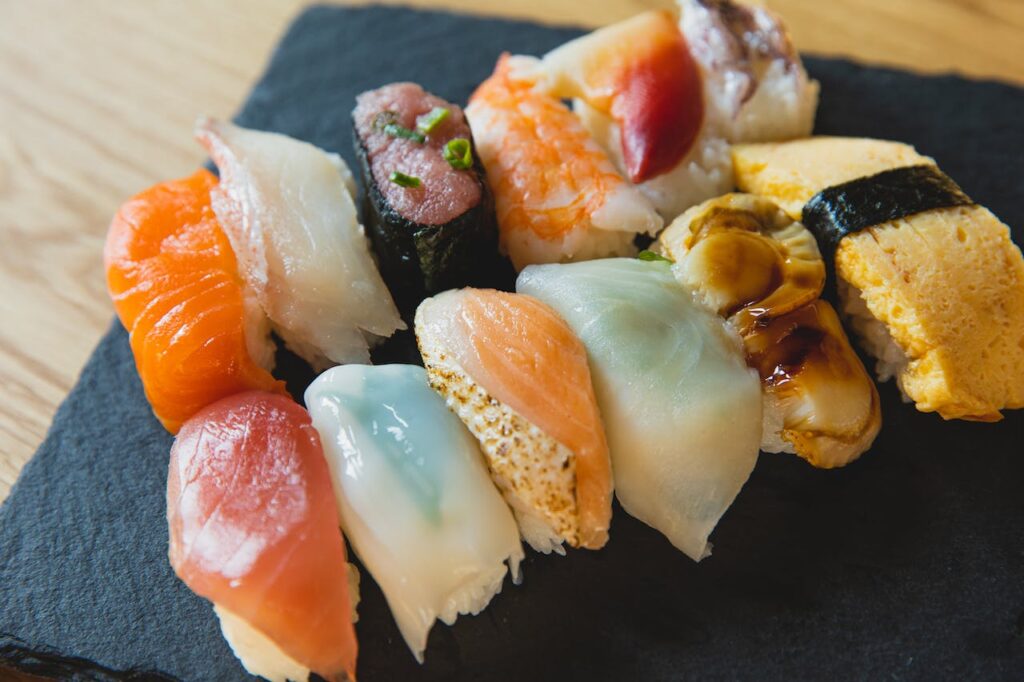
If you’re aiming to boost your collagen levels, fatty fish like salmon are an excellent choice. Allow me to introduce you to our latest addition to the extensive salmon collection here at these styles: the mouthwatering honey-glazed salmon recipe. It’s become one of my absolute favorites. Consider this: a wonderful, straightforward bowl of pure bliss that will certainly become a weeknight supper favorite.
5. Turkey
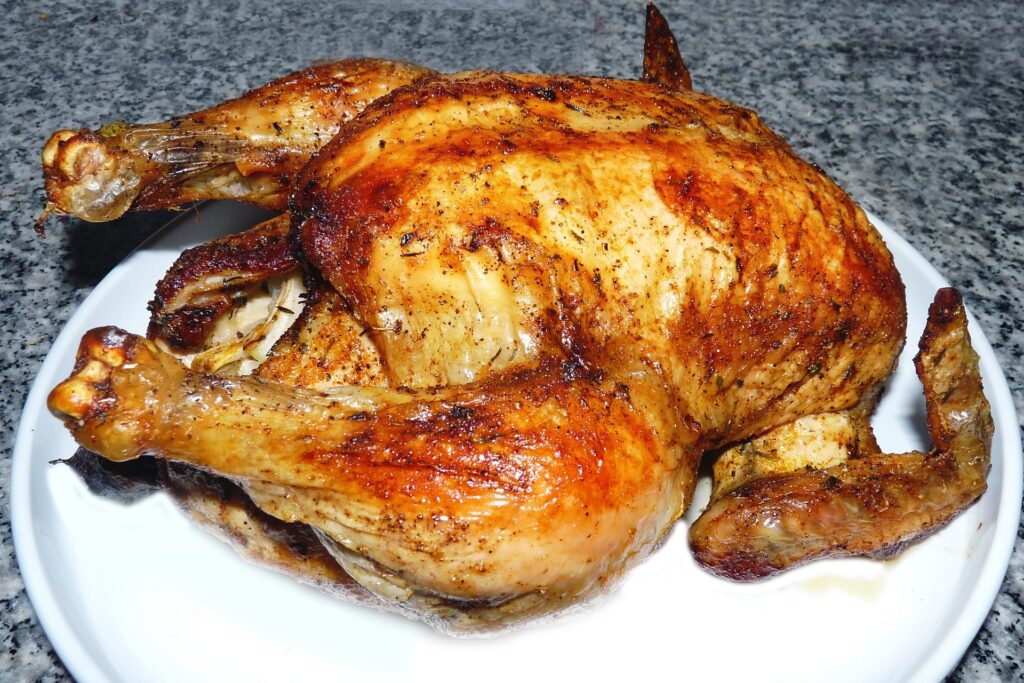
Just like chicken, turkey is also naturally high in collagen. While the turkey sausage used in this recipe can do the job, the connective tissue, skin, and sinew are where you’ll find the richest sources of collagen in the bird.
Eating poultry gives your body the important a
mino acids proline and glycine, which are needed to produce collagen, in addition to being a pleasant meal. Your Thanksgiving turkey will now have even more meaning—it’s an extravagant feast that will enhance your collagen levels.
The Bottom Line
Maintaining a well-balanced diet that includes a variety of nutrient-rich foods is essential to reaping the full benefits of collagen-boosting superfoods. In addition, maintaining your skin’s ideal state depends critically on drinking enough water and avoiding too much sun exposure.
It’s not necessary to only use pricey cosmetics or intrusive surgeries to get youthful, glowing skin. The five superfoods listed above can help you naturally increase the production of collagen in your skin, giving you a more radiant, young complexion.





